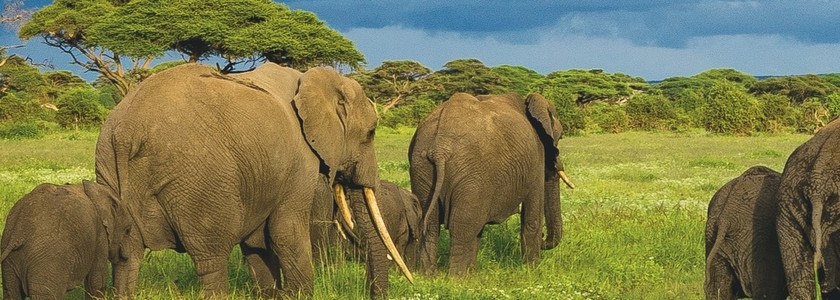

Last week, the Kenya Wildlife Service (KWS) announced that their elephant population has more than doubled over the past three decades, thanks to an effort to curb poaching. In 1989, there were only around 16,000 elephants, but as of 2018, there are over 34,000! Kenya has what is called a "Conservation and Management Strategy of Elephant" in place and this guides elephant recovery strategies, which first launched in 2012. The director of KWS announced this during a visit to Amboseli National Park last week on World Elephant Day (August 12). He further mentions, "Today we are also launching the Magical Kenya elephant naming campaign, an annual festival whose objective will be to collect funds from the naming and to support the Rangers welfare." This is referring to the armed guards, whose task is to deter poachers. "This year alone, about 170 elephant calves have been born."
The number of elephants being poached in Kenya in 2020 is down from previous years. Only around 7 elephants have been poached, compared to 39 in 2019 and 80 in 2018. While this is great news for Kenya, other regions of Africa are seeing a sadder story. At one time in the 1970's, Africa had 1.3 million elephants; today, that number is around 500,000, with only 30,000 left in the wild. The poaching of elephants is driven by a demand of ivory and rhino horns, used in medicine in Asia. The demand for this has sadly become very high. Stricter laws need to be set and more security in order to stop these poachers.
The article further mentions that in 2016, "President Uhuru Kenyatta set fire valuable stockpile of elephant tusks and rhino horns to send a message to smugglers. The government has also instituted heavier fines and stiffer jail terms for anyone convicted of poaching wildlife or trafficking in wildlife trophies."